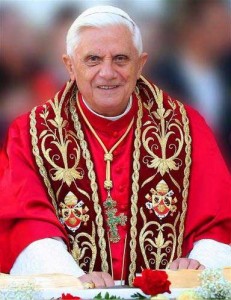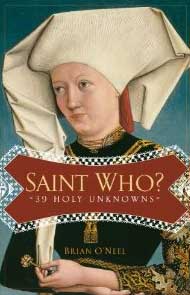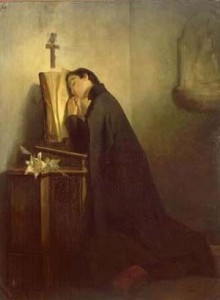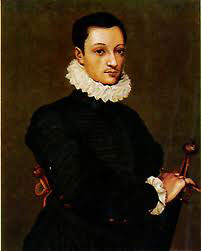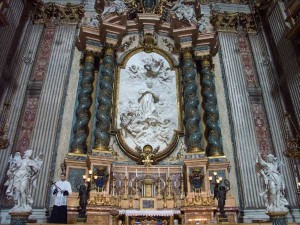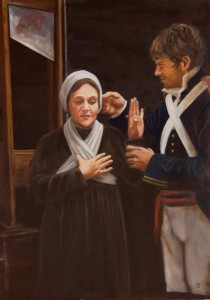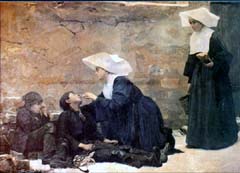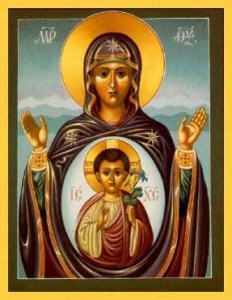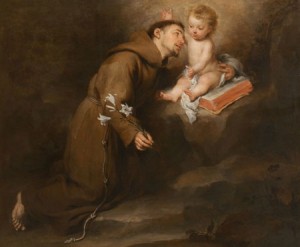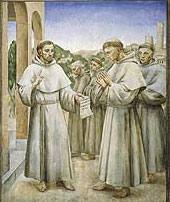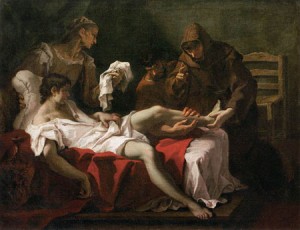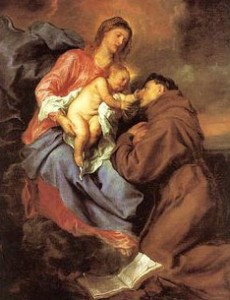Join Bruce and I as we discuss with Mike Aquilina the powerful and at the same time, poignant witness of the Holy Roman  Martyrs
Martyrs
Podcast: Play in new window | Download (Duration: 31:49 — 29.1MB) | Embed
Subscribe: Apple Podcasts | Spotify | Amazon Music | Android | Pandora | iHeartRadio | JioSaavn | Podchaser | Gaana | Podcast Index | Email | TuneIn | Deezer | Anghami | RSS | More
From Mike’s great website The Way of the Matyrs: ROMAN PROTOMARTYRS
Monday June 30th 2008, 10:23 am
Filed under: PatristicsToday’s the feast of the first Roman Martyrs. Theirs is a story you just have to hear. But first we have to backtrack a little bit.
In July of A.D. 64, during the tenth year of Nero’s reign, a great fire consumed much of the city of Rome. The fire raged out of control for seven days — and then it started again, mysteriously, a day later. Many in Rome knew that Nero had been eager to do some urban redevelopment. He had a plan that included an opulent golden palace for himself. The problem was that so many buildings were standing in his way — many of them teeming wooden tenements housing Rome’s poor and working class.
The fire seemed too convenient for Nero’s purposes — and his delight in watching the blaze didn’t relieve anybody’s suspicions. If he didn’t exactly fiddle while Rome burned, he at least recited his poems. Nero needed a scapegoat, and an upstart religious cult, Jewish in origin and with foreign associations, served his purposes well. Nero, who was a perverse expert at human torment, had some of its members tortured till they were so mad they would confess to any crime. Once they had confessed, he had others arrested.
He must have known, however, that the charges would not hold up. So he condemned them not for arson, or treason, or conspiracy, but for “hatred of humanity.”
To amuse the people, he arranged for their execution to be a spectacle, entertainment on a grand scale. The Roman historian Tacitus (who had contempt for the religion, but greater contempt for Nero) describes in gruesome detail the tortures that took place amid a party in Nero’s gardens.
Mockery of every sort was added to their deaths. Covered with the skins of beasts, they were torn by dogs and perished, or were nailed to crosses, or were doomed to the flames. These served to illuminate the night when daylight failed. Nero had thrown open the gardens for the spectacle, and was exhibiting a show in the circus, while he mingled with the people in the dress of a charioteer or drove about in a chariot. Hence, even for criminals who deserved extreme and exemplary punishment there arose a feeling of compassion; for it was not, as it seemed, for the public good, but to glut one man’s cruelty, that they were being punished.
That is all we know about the first Roman martyrs. We know none of their names. Tacitus doesn’t tell us why they were willing to die this way rather than renounce their faith. Yet this should be an important question for us to consider. Why did the martyrs do this? What prepared them to face death so bravely? To what exactly did they bear witness with their death?
The answers to these questions (and many more) can be found in the rest of the article, at the archive of Touchstone Magazine. The article originated in a talk I gave in Rome in 2005 on the feast of the Roman Martyrs. It’s called “The Roman Martyrs and Their Mass.”
I also treat the subject in my book The Resilient Church: The Glory, the Shame, & the Hope for Tomorrow.



